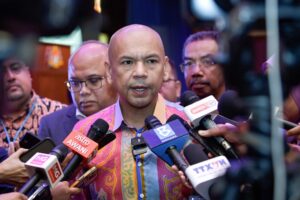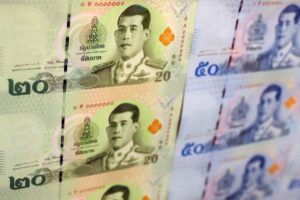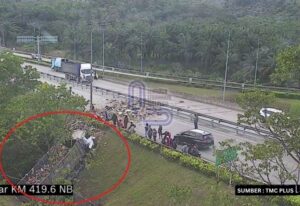KUALA LUMPUR, July 31 — The Madani government has boldly and decisively shaped the direction of national policies through the formulation of a comprehensive framework known as the Madani Economy that is based on sustainability, the people’s well-being, and governance with integrity.
Prime Minister Datuk Seri Anwar Ibrahim said that under this framework, the government has initiated structural economic reforms, including the New Industrial Master Plan (NIMP 2030), National Energy Transition Roadmap (NETR), National Semiconductor Strategy (NSS), and National TVET Policy 2030.
In addition, the private sector has forged ahead along with the government — for example, the GEAR-uP programme, led by government-linked investment companies, has boosted domestic direct investments.
“The KL20 Action Plan was also introduced with the aspiration of making Kuala Lumpur one of the top 20 global startup ecosystems. Since its launch in April 2024, the capital’s position in the 2025 Global Startup Ecosystem Report has risen to 68th place, with 4,464 registered startups.
“We are now on the right track to reach the target of 5,000 startups by the end of this year. At the same time, venture capital firms with average assets under management (AUM) reaching US$400 million (RM1.7 billion) have also shown interest in operating in Malaysia,” he said when tabling the 13MP in Parliament today.
Anwar said that to further stimulate domestic economic activity, investments through strategic collaborations with the industry continue to be strengthened.
This includes initiatives like the Johor–Singapore Special Economic Zone (JS-SEZ) and the Kulim Hi-Tech Park (KHTP), which have successfully attracted both foreign and domestic investments in high-tech sectors.
He also noted that development efforts have been expanded to include the Kerian Integrated Green Industrial Park (KIGIP) and the Automotive High Tech Valley (AHTV) in Tanjung Malim, Perak, as well as strategic industrial parks in Sabah and Sarawak.
Meanwhile, Anwar said the government is also undertaking legislative reform through the enactment or amendment of over 80 laws, including the ILTIZAM Act, Data Sharing Act, Police Act, and the Child Act.
“Enforcement agencies such as the Malaysian Anti-Corruption Commission (MACC), National Audit Department, and Malaysia Competition Commission (MyCC) have also been strengthened in an effort to combat corruption, leakages, and abuse of power in a more comprehensive and effective way,” he added.
He also noted that fiscal management has been enhanced through the enactment of the Public Finance and Fiscal Responsibility Act as part of ongoing efforts to reduce the national deficit.
In addition, the government is continuing its efforts to curb the rising cost of living through the better implementation of targeted subsidies, such as for diesel and electricity, to ensure that aid reaches the targeted groups without wastage.
“The Sumbangan Tunai Rahmah (STR) and Sumbangan Asas Rahmah (SARA) have also been increased. SARA recipients have been expanded from the initial 700,000 hardcore poor to 5.4 million recipients, including the B40 group.
“Last week, I also announced a one-off SARA cash aid of RM100 for all citizens aged 18 and above, involving an allocation of RM2 billion. As a result, the total allocation for STR and SARA assistance in 2025 will reach RM15 billion,” he said.
Anwar also said the government has increased people’s incomes through the minimum wage order, progressive wage policy and Public Service Remuneration System (SSPA).
He said the Madani government has successfully raised the minimum wage twice — from RM1,200 to RM1,500, and then to RM1,700.
Meanwhile, a living wage benchmark of RM3,100 per month has also been set for employees of government-linked companies (GLCs) and government-linked investment companies (GLICs).
“TVET graduates are also enjoying increasingly competitive salaries, with most earning above the RM1,700 minimum wage. A total of 95.6 per cent of TVET graduates have secured employment within six months of completing their training,” he said.
On a separate matter, Anwar said that emphasis has also been given on basic infrastructure projects, including the upgrading of schools; dilapidated clinics; quarters for teachers, the armed forces and police; road maintenance; and flood mitigation projects.
“To date, 1,368 Royal Malaysia Police (PDRM) and 3,088 Malaysian Armed Forces (ATM) housing units have been completed, with an additional 8,501 units being under construction.
“At the same time, a total of 69,141 existing housing units for ATM and PDRM personnel have been repaired and upgraded,” he added. — Bernama





